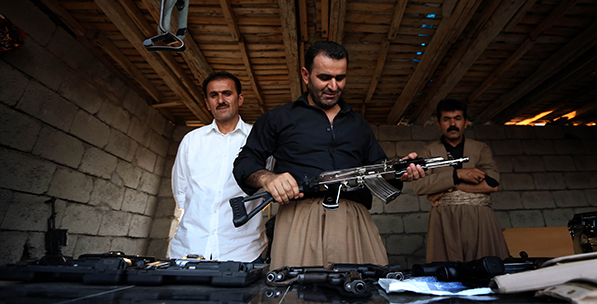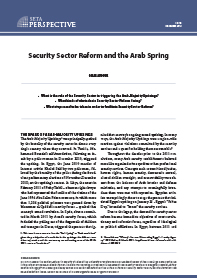The Arab-Majority Uprisings were principally sparked by the brutality of the security sector in almost every single country where they occurred. In Tunisia, Mohammed Bouazizi’s self-immolation, following an insult by a policewoman in December 2010, triggered the uprising. In Egypt, the June 2010 murder of Internet activist Khaled Said by two policemen, followed by the brutality of the police during the fraudulent parliamentary elections of November-December 2010, set the uprising’s context. In Libya, the arrest in February 2011 of Fathy Terbil – a human rights lawyer who had represented the families of the victims of the June 1996 Abu Selim Prison massacre, in which more than 1,236 political prisoners were gunned down by Muammar al-Qaddafi’s security forces – sparked that country’s armed revolution. In Syria, abuses committed in March 2011 by Assad’s security forces, which included the pulling out of the fingernails of children and teenagers in Deraa, triggered the protests that ignited that country’s ongoing armed uprising. In many ways, the Arab-Majority Uprisings were a region-wide reaction against violations committed by the security services and a quest for holding them accountable.

Security Sector Reform and the Arab Spring
What is the role of the Security Sector in triggering the Arab-Majority Uprisings? What kinds of obstacles is Security Sector Reform facing? What steps need to be taken in order to facilitate Security Sector Reform?
By
Omar Ashour


